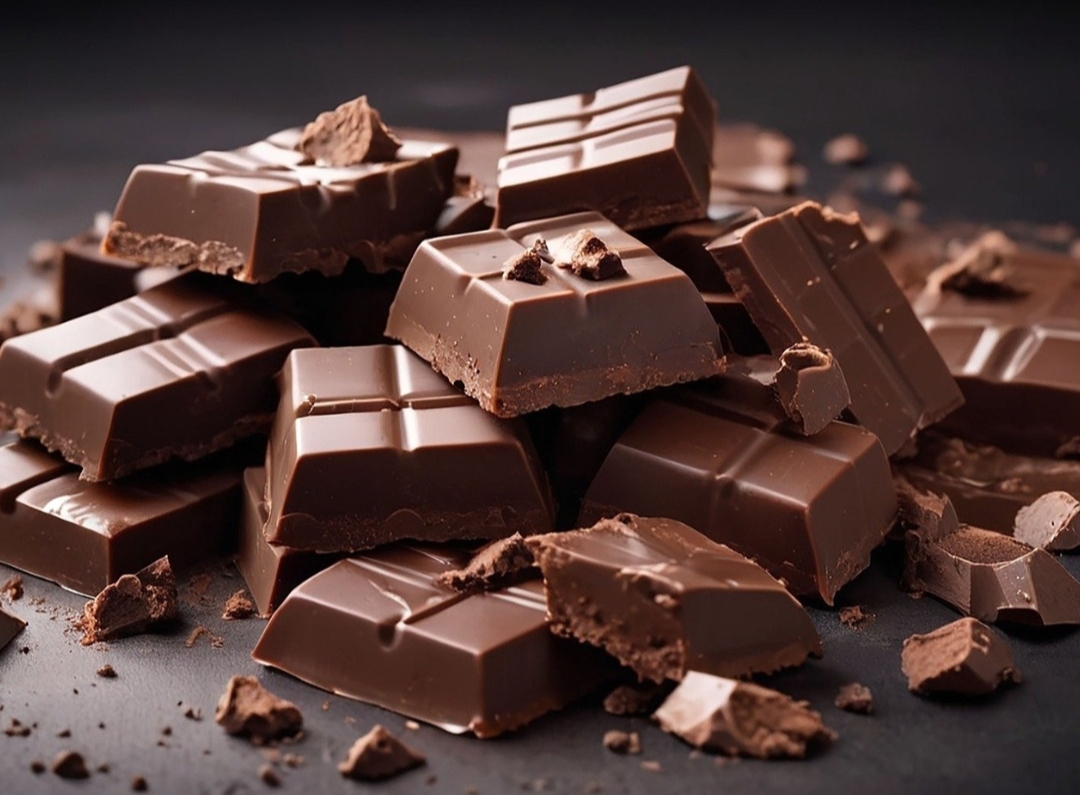Chocolate is a beloved global phenomenon with a rich and complex history. International Chocolate Day is celebrated on September 13th, the shared birthday of Milton S. Hershey, founder of the Hershey Company, and Roald Dahl, author of many beloved children’s books, including Willie Wonka and the Chocolate Factory. These men helped popularize chocolate, but its story began thousands of years ago.
Experts once thought that the Olmecs, an ancient Mesoamerican civilization from 1500 BCE, were the first to have domesticated the cacao plant. However, in 2018, news shocked the world that ancient pottery recovered from southeast Ecuador contained the principal compound in cacao, theobromine. The pottery was dated to be 5,300 years old. We now know that the domestication of cacao originated in the upper Amazon region and made its way to Mesoamerica. From there, the Spanish conquistadors brought cacao beans back to Spain.
By the late 1500s, chocolate flourished in Spain before taking hold of the rest of Europe and, eventually, the American Colonies. However, raw cacao was expensive. Chocolate was a luxury exclusively for the wealthy and elite. It was even used as a form of payment for soldiers during the Revolutionary War. Cacao became widely accessible when the price per pound dramatically decreased by the mid-19th century. Magnitudinous strides in chocolate innovation transformed what was only a bittersweet beverage into solid bars and bites by the late 19th and early 20th century.
While the history of chocolate as a product is interesting, its linguistic journey is equally intriguing. Etymologists still argue over the origins of the word “chocolate.” Some experts infer it’s from the Nahuatl word chocolātl, while others credit the Aztec word xocolatl. Regardless, “chocolate” sounds similar across most languages because most share the same root word. The Latin name for the cacao plant is Theobroma cacao, meaning “food of the gods.” The earliest uses of cacao suggest that it has always been revered and incorporated into rituals, medicine, and daily life. People have believed that chocolate holds medicinal qualities since ancient history, and research is starting to support these claims.
Cacao’s chemical composition has interested experts who realize its medicinal potential. Theobromine is the essential compound in cacao. It is similar in structure and function to caffeine but without the notorious side effects. This compound can be found in dark chocolate but starts becoming diluted in milk chocolate. White chocolate is made from cocoa butter and doesn’t usually contain cacao. You might have heard chocolate is rich in antioxidants and can improve our mood. Cocoa contains an amino acid that helps regulate serotonin levels. Experts think it may also fight cancer cells, reduce inflammation, and regulate blood pressure, amongst other medicinal effects.
With its many positive advantages to human health and consistently being held in high regard across cultures and generations, it’s no wonder that there are numerous holidays, festivals, and other events dedicated to chocolate throughout the year. But if you aren’t a fan of chocolate in any form, perhaps you haven’t found the kind of chocolate that speaks to you. Chocolate is best known as a dessert, but did you know it can also be used in savory dishes?
Chocolate was traditionally a bitter liquid before Europeans turned it into a sweet, frothy concoction. Mole poblano is the national dish of Mexico, and tortellini cremaschi is the regional dish of Crema, Italy. Both dishes use cacao in a surprising yet satisfying way. Cocoa can also be used in barbecue sauces, stews, chili, and more. Chocolate also pairs well with cheeses, fruits, and wine. The culinary creativity that chocolate inspires is constantly evolving.
The love of chocolate has endured over millennia, which is a testament to its hold on our hearts. As we celebrate International Chocolate Day, let’s appreciate not only its rich history and cultural significance, but also the transformative effect it continues to have in cuisines and medicines. Whether you’re already a chocolate lover or are just beginning to explore its depths, there’s always something for everyone in the world of chocolate.
Her Nexx Chapter invites you to join our free Community where women from around the world are connecting with each other’s stories, exploring different experiences, and transforming ideas.
The Future of Connection for Women








What an interesting and rich history!